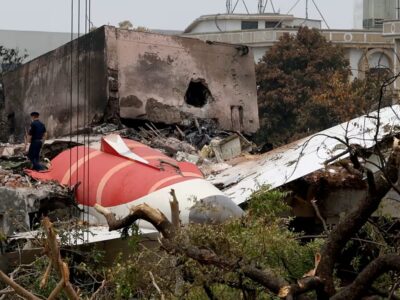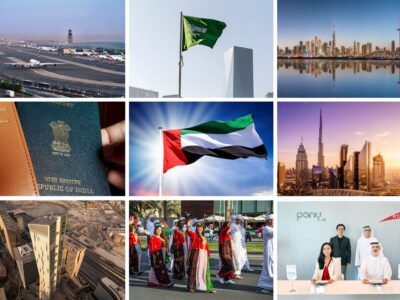Experts in aviation law, Ian Veall tells how employing a specialist can bolster aviation service offerings.
Aerospace law is quite a specialised field. What sort of services do you typically offer to clients?
Aerospace law is indeed specialised, however it is an immense area of law covering a wide array of legal issues.
It concerns, for example, the use and regulation of space, satellites, telecommunications, the environment, aircraft (military and civilian), airports and related equipment and financing of the same.
We certainly do not claim to have expertise in all these areas. Instead, our firm’s primary focus is the provision of specialised legal advice relating to the sale, purchase, lease, finance and insurance of new and used civilian aircraft (both fixed and rotary wing, manned and unmanned) to local and international private, corporate, commercial airline and government clients.
I am proud to say that our Firm is the only fully-fledged law firm in the Gulf exclusively practising aviation-associated law and one of only a handful of such firms in the world.
With ever-developing aircraft technologies, operational capabilities, regulations and financing structures, one needs to live, breathe and sleep aviation to understand the industry.
Keeping abreast of such developments is important in order to properly advance your clients’ interests: This is definitely not a field of law in which one can dabble.
How long have you been in the region? What made you choose to expand to Dubai from your Canadian roots?
I first became fascinated with this region as a high school student having an opportunity to visit Egypt in the early 1980s.
This spawned a desire to know more about this region at the university level where my first two university degrees were in Middle Eastern studies which included a couple of years studying Arabic at the Kuwait University.
Following my law studies in the UK, I spent a short time practising law in Yemen before permanently relocating to Dubai in 1995.
1995 was also the year that the Firm established its base in Dubai. Prior to that, our senior partner, Dr. Donald H. Bunker (who had been the partner in charge of aerospace at a major Canadian law firm) was providing advice to airlines in Dubai and the region.
Although international airlines had been servicing this region for years, the local aviation market was still in its infancy and the Firm established itself in Dubai at the urging of Emirates who was launching its expansion program and needed qualified aviation legal advice close at hand. The rest is history.
What role do you think Dubai plays in the international aviation scene? How has this role changed?
Dubai and its sister emirates are at the forefront of the aviation industry. With an open skies policy, first-class infrastructure, active business aircraft association, vibrant and diversified economy and a stringent and well-respected civil aviation authority, Dubai in particular and the UAE as a whole are driving forces in the industry.There once was a time, for example, during the early days of Emirates, when industry executives around the world questioned “Where is Dubai?
Today, Dubai, the U.A.E. and Emirates are household names, having firmly established themselves as leaders and the envy of industry executives globally.
How have strategies changed in the last five years?
Our strategy has remained constant and we believe successful. We have a high calibre client base and have represented the majority of our clients for several years.
We are, however, by no means complacent and continually strive to provide the highest level of service to all our clients by providing them with practical, relevant legal advice in a prompt manner.
We are determined to maintain a controlled approach to expansion, preferring to strive for quality of work with a select number of clients rather than quantity of lawyers.
How do you guarantee consistency in your offering quality?
Aerospace lawyers are not created overnight. It takes years of training, commitment and dedication before someone can properly call himself or herself an ‘aerospace lawyer’.
With technology and knowledge in this industry growing exponentially, our firm places a tremendous emphasis on training: We invest heavily in our employees and all work is undertaken under the guidance of senior associates and our senior partner.
How do you market yourselves in an increasingly busy sector?
By far, our most effective marketing comes from word-of-mouth. The aviation industry is a small one. News of successes and failures travels fast and reputations can be made or broken in a single transaction. We are very cognisant of this.
As a further part of our marketing strategy, members of our firm regularly lecture at, and chair, industry-related conferences. Dr. Bunker is a professor at McGill University’s Institute of Air and Space Law and frequently lectures to airlines (e.g. through the IATA training program), business organisations and financial institutions. Moreover, Dr. Bunker has authored several books relating to this industry in particular on aviation financing.
Where is the market for aviation legal services going?
Although we predict a slowdown in several regions globally, the market in this region continues to expand. Many individuals and entities do not even realise that they require specialised legal advice.
Do you have any ambitions for your firm?
Our firm is now in its 14th year in Dubai and I would, as a managing associate, like to see it continue its expansion in legal aviation at an affordable cost to our clients.






